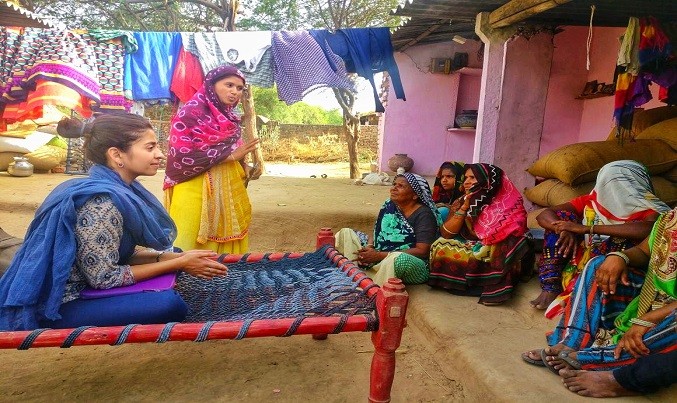When corporations lend a hand to social startups, the whole ecosystem changes for the better and everyone wins, writes Angeli Recella of Makesense.
Today, organizations are no longer assessed based solely on traditional metrics such as financial performance, or even the quality of their products or services. To thrive, businesses must incorporate positive social impact by maintaining positive relationships, not just with customers and employees, but also with local communities and regulators. This is not simply a matter of altruism: effective corporate social responsibility efforts are critical to maintaining an organization’s reputation; attracting, retaining, and engaging their employees; and cultivating loyalty among customers.
-
76% of young people said they have purchased (53%) or would consider purchasing (23%) a brand/product to show support for the social issues the brand supported. DoSomething Strategic’s 2018 Survey of Young People and Social Change
-
But perhaps even more importantly — and more costly — 67% have stopped purchasing (40%) or would consider doing so (27%) if the company stood for something or behaved in a way that didn’t align with their values. DoSomething Strategic’s 2018 Survey of Young People and Social Change
-
[Employee] Turnover dropped by 57% in employee groups most deeply connected to their companies’ giving and volunteering efforts. 2018 Benevity Engagement Study
On the other hand, social startups attract consumers and great talent more and more because of their shared social values. Because of their size and nature, social impact startups can be agile in terms of finding and testing solutions for their beneficiaries. Being part of a social impact startup also brings a sense of purpose to those who work in and with them. However, the reality is that it is difficult for a social impact startup to survive long enough to scale its impact due to lack of capital and other resources.
But consider this: What if corporations and social startups work hand-in-hand?
Makesense has facilitated and enabled partnerships between several corporations and social entrepreneurs in the past 10 years.
We learned that Corporate Social Responsibility (CSR) is not a task reserved for the Human Resources or Corporate Affairs departments. Now, more than ever, effective CSR is a competitive advantage.
Here are three main learnings that stood out in our experience:
- Build stronger employee engagement by working on social impact projects together.
For instance, in 2019, Sanofi had challenges in engaging their employees and boosting employee morale. To solve this, Sanofi, in partnership with Makesense, incubated social impact startups that address health access and delivery. One of the startups from the incubation is Squeaky Clean Kids, which works to make good hygiene accessible to all through hygiene awareness campaigns and a “Buy-One-Fund-One” business model for their homemade antibacterial organic soap. Because of the alignment in collective social purpose, Sanofi employees had a strong sense of team building, pride for their employer, and engagement.
A 2017 study by Deloitte found that 88% of millennials believe that employers should play a vital role in alleviating these concerns, and 86% say business success should be measured by more than profitability.
- Businesses can test new markets by employing social entrepreneurs
Decathlon PH wanted to open untapped market segments for sportswear and equipment. Along with the goal of empowering their advocacy to democratise sports access, Decathlon partnered with Exceptional Sports Philippines—a social impact startup that enables children with special needs to participate in sports. Together, the partnership was able to open up this new market segment for Decathlon through the development of the Play Kit, an affordable training module that equips parents of children with special needs (CWSN) with the resources to interact with children through sports and play. Almost a year after the partnership started, Exceptional Sports still holds sports training for CWSN within Decathlon grounds.
-
Engaging in social innovation boosts the company’s employer branding.
Cisco is an esteemed technology firm. In the past, they have had challenges in attracting the younger generation to be part of their firm. As a solution, Cisco partnered with Makesense France to launch a program called “Tech for Good” that empowered tech innovators who were working on a social problem, while selling Cisco’s innovative side to prospective hires. The program sparked a new kind of employer branding for Cisco—one that showcased how agile, open, and socially responsible they were.
Since then, a unit for strategic innovations has been created to continue the Tech for Good efforts.
- A recent Nielsen study found that 67% of employees prefer to work for socially responsible companies, and 86% of consumers will pay extra for products sold by companies committed to positive social impact.
- A study of 22,000 investment professionals found that 78% have increased their investments in CSR-focused firms.
Companies have a unique opportunity to make social responsibility a core part of their strategy and identity. In doing so, they can also empower and enable budding social impact startups.
The shared demographic of youth can help multiply the effect. When corporations and social startups work hand-in-hand, the resulting innovation leads to scaled up and sustained social good.











